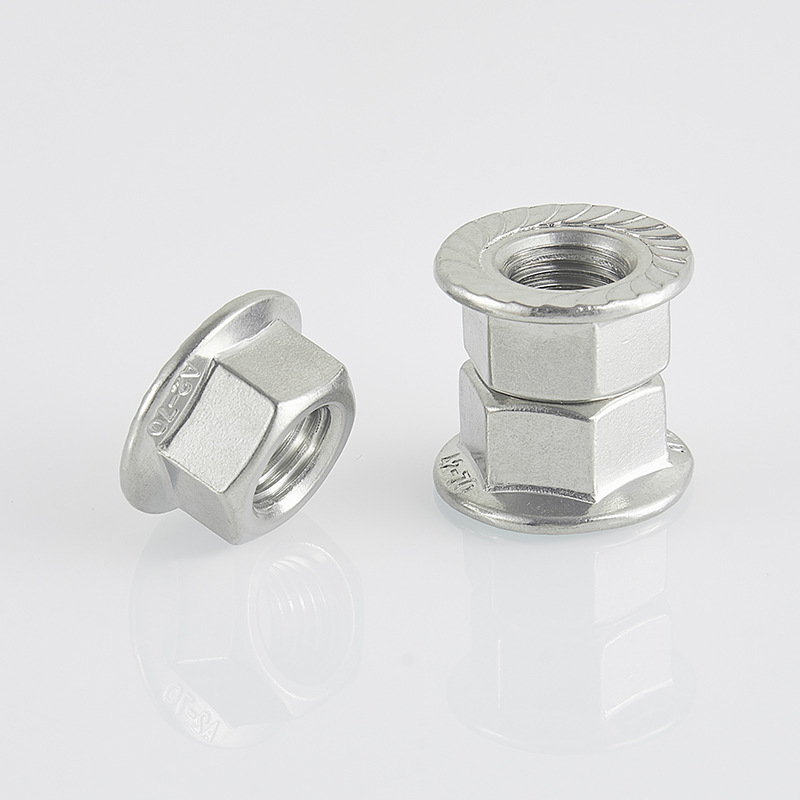

metal nuts
Nov . 16, 2024 01:56 Back to list
metal nuts
The Versatile World of Metal Nuts An Essential Component in Engineering and Everyday Use
Metal nuts play a crucial role in various industries and everyday applications, serving as vital components in fastening systems. Their significance can be seen in automotive manufacturing, construction, electronics, and even furniture assembly. This article delves into the various types of metal nuts, their materials, applications, and the future trends surrounding these indispensable hardware elements.
Understanding Metal Nuts
At its core, a metal nut is a hexagonal block of metal with a central hole that is internally threaded. This hole is designed to fit onto the corresponding external thread of a bolt or screw, allowing for the assembly of two or more components securely. Metal nuts come in various shapes and configurations, including hex nuts, lock nuts, wing nuts, and more, each serving specific functions depending on the application.
Types of Metal Nuts
1. Hex Nuts The most common form of nuts, hex nuts, are widely used in various applications due to their simple design and effectiveness. They provide a strong holding power when paired with the appropriate bolt, making them suitable for heavy-duty applications.
2. Lock Nuts Lock nuts are designed to resist loosening under vibrations and dynamic loads. They feature a nylon insert, serrated edges, or other mechanisms that lock them into place, making them ideal for automotive and machinery applications where vibrations are prevalent.
3. Wing Nuts These nuts come with two large 'wings' that allow for easy hand tightening. Wing nuts are commonly used in applications that require frequent adjustments or removals, such as securing parts in a temporary setup.
4. Nylock Nuts Featuring a nylon insert that grips the bolt when tightened, nylock nuts are innovative in preventing loosening due to vibration. This characteristic makes them particularly valuable in the automotive and aerospace industries.
5. Flange Nuts Flange nuts have a wider base compared to standard nuts, providing a larger surface area. This design helps distribute the load and can eliminate the need for washers, making them efficient for certain applications.
Materials Used in Metal Nuts
metal nuts

The materials used to manufacture metal nuts can vary significantly depending on their intended application. Common materials include
- Stainless Steel Known for its resistance to corrosion and rust, stainless steel nuts are ideal for applications in humid or chemical environments. - Carbon Steel These nuts are often used in construction and heavy machinery due to their strength and durability. They can be coated with various finishes for added protection. - Brass Offering good corrosion resistance and electrical conductivity, brass nuts are often used in electrical applications and plumbing.
- Aluminum Lightweight and resistant to corrosion, aluminum nuts are ideal for applications where weight is a critical factor, such as in aerospace design.
Applications of Metal Nuts
The applications of metal nuts are extensive and varied. In the automotive industry, they secure components like engines and suspensions, ensuring safety and structural integrity. In construction, metal nuts are essential for assembling frameworks, securing beams, and ensuring that structures are stable and reliable.
In electronic devices, specialized metal nuts hold circuit boards in place, facilitating secure electrical connections. Furniture assembly often utilizes various types of nuts, demonstrating their role in everyday products.
Future Trends in Metal Nuts
With the advancement of technology and materials science, the future of metal nuts looks promising. The trend towards automation and smart manufacturing processes is likely to influence how metal nuts are produced, with an emphasis on precision and efficiency. Additionally, the growing focus on sustainability may lead to the development of recyclable materials and eco-friendly coatings.
Moreover, as industries continue to push for lightweight and high-strength components, the innovation in materials such as titanium and advanced alloys might become more prevalent in the manufacturing of metal nuts. This evolution will support advancements in aerospace, automotive engineering, and beyond.
Conclusion
Metal nuts, though often overlooked, are integral to the functionality of countless structures and devices. Their diverse forms, materials, and applications underscore their importance in both industrial and everyday settings. As technology continues to evolve, the role of metal nuts will undoubtedly adapt, providing essential support to the innovations of the future. Whether in the assembly of a simple piece of furniture or in the complex machinery of an aircraft, metal nuts remain a vital component in our engineered world.
Latest news
-
Premium Fasteners Manufacturer | AI-Driven Solutions
NewsAug.01,2025
-
Hot Dip Galvanized Bolts - Hebei Longze | High Strength, Corrosion Resistance
NewsAug.01,2025
-
High-Strength Hot Dip Galvanized Bolts - LongZe | Corrosion Resistance, Custom Sizes
NewsAug.01,2025
-
Best Self Tapping Screws for Drywall - Fast & Secure Installation
NewsJul.31,2025
-
High-Strength Hot Dip Galvanized Bolts-Hebei Longze|Corrosion Resistance&Customization
NewsJul.31,2025
-
Hot Dip Galvanized Bolts-Hebei Longze Metal Products|Corrosion Resistance&High Strength
NewsJul.31,2025

